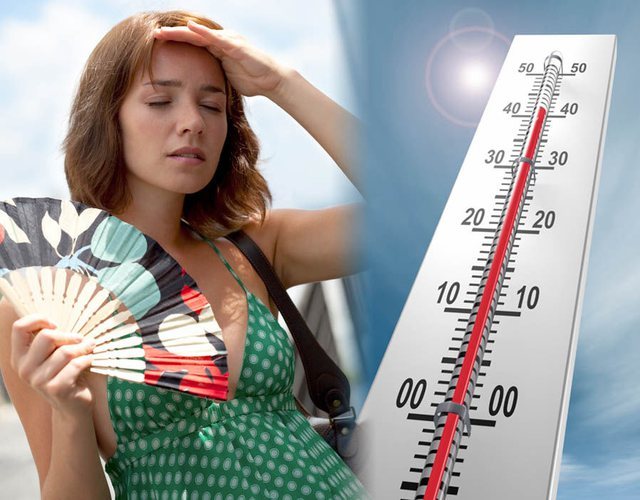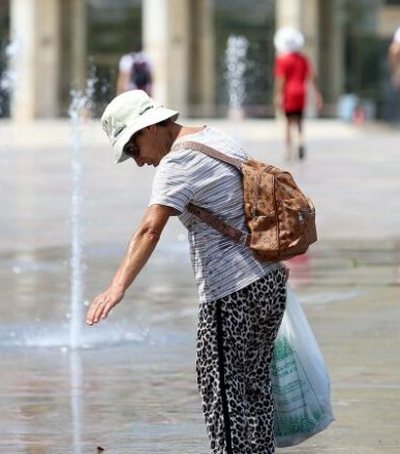
The arrival of the summer season for someone is a real hassle. Heat intolerance results in great difficulties for the organism to regulate its internal balances to adapt to temperature.
In these cases the sweating is intense, the face becomes redder and in some cases the clothes take on a different color. Why do some suffer more from heat?
Body temperature
According to the convention, the human body temperature of 36.5 ° - 37 ° is indicated as "normal", with a certain degree of variability at an individual level. A healthy organism implements complex body thermoregulatory processes, which depend on the hypothalamus. Thanks to these biological mechanisms, the internal temperature is maintained at a constant level of the regulatory regime.
Body temperature is not always the same: it usually appears to be lower between 4 and 5 degrees in the morning, then rises in the late afternoon between 5 and 6 p.m.
What happens to the body in hot weather?
When we are in a cold environment, the thermolysis process increases and there is a balanced heat loss of the skin. The heat affects the blood vessels, which can cause the typical heat burst.
When do you suffer the most from heat?
The process of producing, maintaining and distributing heat from the body seems to be related to hormonal activity. During ovulation the body temperature rises, you know? Secreted progesterone affects about 0.5 ° C in relation to baseline values. Problems of excessive sweating in some cases may be related to hormone activity.
When we are on the move, for example if we are late or because we are doing sports, the body produces more heat. This also happens when we eat: digestion requires energy. Physical activity, diet, rhythm of waking from sleep, as well as thyroid dysfunctions, show to play an important role in fluctuations related to body temperature.
Are you experiencing a moment of intense stress? Beware, in this case in the body there is an increase in the production of adrenaline and noradrenaline: metabolism is stimulated, body heat increases.

Hyperthermia, symptoms
The sudden rise in body temperature, known as heat stroke, may present with signs of loss of appetite, headache, dehydration, the presence of convulsive episodes.
The heat waves typical of the summer period are most surmountable when we find ourselves in a hot dry climate. In fact, the human body generally tolerates even high temperatures, provided it has a humidity level of about 30%: the higher the humidity, the more frequent the cases of the disease.
The elderly and newborns may have more difficulty compensating for the mechanisms, but those suffering from hypertension, cardiovascular disease, chronic kidney failure, neurological disease, and chronic respiratory disease are also at risk.
Those who work out or play an intense sport can risk dehydration, fluid supply is essential. In the case of an emergency treatment it is necessary to move the person in a cold environment and help him drink something, replenish fluids thanks to drinks rich in mineral salts and sugars. These are all quick and efficient solutions.





